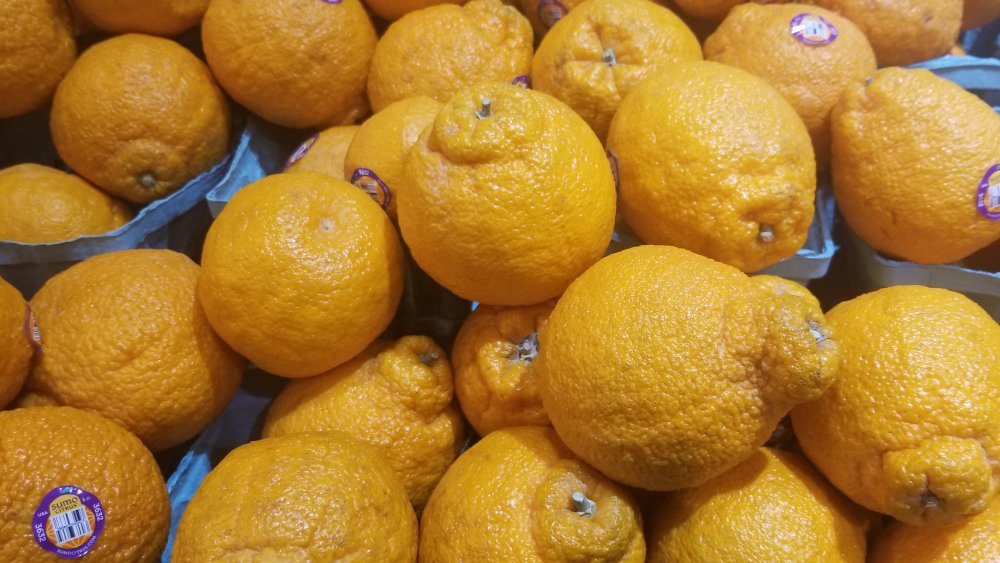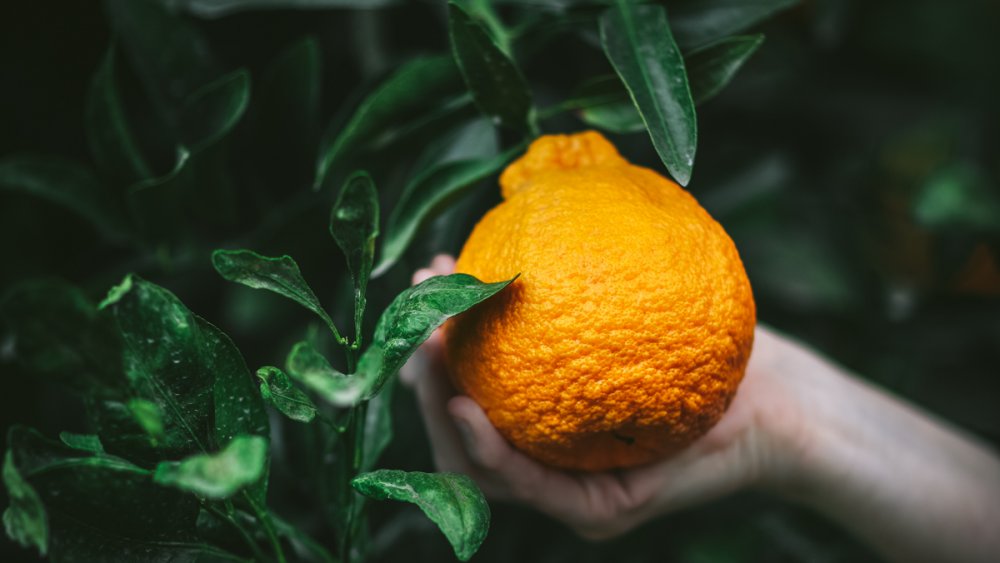What Is A Sumo Orange And Why Is Everyone Eating Them?
Sumo oranges are a large, seedless, sweet mandarin hybrid, originally cultivated in Japan in the 1970s where they are known as dekopon (via PopSugar). Upon first glance, Sumo citrus, which is its preferred name, might remind you of a tangelo, but just not as pretty. Sumo citruses have a knobby topknot, similar to that of a sumo wrestler, with a bumpy outer peel that practically falls off with little to no effort once you begin peeling the knob off.
Sumo seedlings were imported to the United States in 1998, but the Sumo fruit proved a challenge for growers, requiring nearly 13 years of work before getting the fruit to market. Consumers were finally able to purchase and enjoy this sweet and tangy citrus in 2011 (via Sumo Citrus).
Today, Sumo Citrus is grown in big greenhouses in the San Joaquin Valley in California on small acreage farms. The fruit is difficult to grow because the Sumo Citrus plant's rootstock is susceptible to disease. Therefore, growers must graft the sumo citrus tree onto another variety's rootstock to create a stronger, more durable plant. Once it has grown in size, the Sumo plant is replanted outside (via Adventures in Cooking).
Sumo oranges: Why eat them?
It takes four years of care before the trees start producing their sweet citrus fruit, which requires a natural clay-based sunscreen to be applied to the peels throughout summer for protection. Once the Sumo orange is ripe, it is picked and tested for sugar and acid levels.
The acid to sugar level is tested using a Brix measurement. "Degrees Brix" refers to a scale of measurement for soluble solids in a liquid. The soluble solid in fruit is generally sugar. For example, if you hear a fruit has a 20 Brix measurement, this means it has a 20 percent sugar to acid ratio (via Dave Wilson Nursery). According to the Sumo Citrus website, the Sumo Citrus fruit has a very high sugar to acid ratio, which is why people love it. Cooking Light also noted that this is more of a novelty fruit, and its health benefits are no greater than a normal orange, but it's definitely a firework of sweet citrus flavor for your taste buds.
Sumo oranges were once difficult to find, but have recently wrestled their way into stores like Whole Foods, Wegmans, Super Target, Giant, and Harris Teeter, to name a few. Buyers can expect to pay anywhere from $2.99 to $3.99 a pound. Sumo Citrus is only available from January to April, so buy them when they're around, because come May, you will have to wait another year to enjoy one (via Delish).

